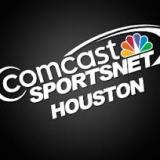Astros Appeal Order Placing CSN Houston under Chapter 11 Bankruptcy Protection
The smarter way to stay on top of the multichannel video marketplace. Sign up below.
You are now subscribed
Your newsletter sign-up was successful

Two days after a judge placed the parent company of Comcast Houston SportsNet under chapter 11 bankruptcy protection, Major League Baseball’s Houston Astros said it is appealing that ruling and also seeking a stay of the Feb. 5 order.
At a hearing Friday at the U.S. Bankruptcy Court in Houston, Astros attorney Giles Kebbe said the club, which holds 46.5% of the regional sports network that has been hamstrung by the lack of carriage contracts, wants Judge Marvin Isgur to overturn his chapter 11 order as it seeks an appeal. A hearing is now scheduled for Feb. 11. The NBA Houston Rockets own 31% of the RSN and Comcast-NBCUniversal 22.5%.
Isgur on Feb. 5 ordered that the limited partnership Houston Regional Sports Network -- the company behind the 17-month-old RSN that has only been able to secure distribution pacts with Comcast and a handful of smaller providers in the Houston market -- be placed under Chapter 11 protection. Last Sept. 27, four companies affiliated with Comcast sought the move, with one of them, Houston SportsNet Finance, saying it was owed $100 million from a loan that was spent on start-up costs and the building of the RSN’s studio facilities.
While Comcast-NBCUniversal and the Rockets wanted Chapter 11 protection, the Astros have sought to dismiss the case, claiming that Comcast-NBCU is looking to seize control and prevent the team from ending its relationship with the RSN.
Isgur's order means the RSN -- presumably pending the new legal proceedings -- will remain in operation as the three partners try to work out a succesful reorganization plan.
In placing CSN Houston under chapter 11, Isgur appointed four fiduciary directors – one from each of the teams and a pair from Comcast-NBCU – who are now legally obligated to act in the best interest of the RSN and would be subject to legal redress if they don't. Under CSN Houston’s original governance, the parties had a similar voting structure in place, one that required unanimity of opinion on key operating decisions, including affiliate agreements. The difference now is that an objecting party could not hold up an action if it's deemed to be in the best interest of the entity.
Kibbe will serve as the fiduciary for the Astros, along with the Rockets CEO Tad Brown. Comcast-NBCU has not declared its representatives. The fiduciaries are being repped by Haynes and Boone LLP, which would step in if the parties bog down, with Isgur ultimately resolving any impasse.
The smarter way to stay on top of the multichannel video marketplace. Sign up below.
With an asking price of $3.40 per monthly subscriber fee, Comcast-NBCU, which manages the RSN and pays the clubs rights fees, was unable to reach agreements with DirecTV, Dish Network, AT&T U-verse, and Suddenlink, among others in its five-state TV territory. Isgur had granted Astros owner Jim Crane and then the Rockets the opportunity to serve as lead negotiators and try and bridge those distribution differences.
Brown, during the Feb. 5 hearing, indicated that as recently as Feb. 3, the Rockets believed they were close to "a carriage solution with the primary partners with long-term incentives to support the success of the network." He did not identify the distributors or say why the plan fell short.
RSNs typically derive 70%-80% of their revenue from license fees. With CSN Houston unable to score deals with most of the major MPVDs, the network could not meet its rights obligations.
